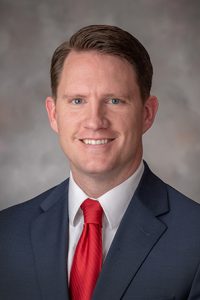State funding for private school students discussed
Students attending private, denominational and parochial schools in Nebraska could receive state funds for education expenses under a proposal considered by the Education Committee Jan. 30.

LB1386, introduced by Blair Sen. Ben Hansen, would establish the Nebraska Student Savings Account Support Fund, which would provide up to $1,500 annually to students attending approved or accredited private, denominational or parochial K-12 schools.
The funds would be placed in educational savings accounts and could be used for expenses such as tuition, fees, textbooks, school supplies, educational therapies or any other materials approved by the State Board of Education. The state treasurer would oversee the fund, which would be available July 1, 2025, and would determine eligibility for the educational savings accounts.
The bill does not specify a funding source for the Nebraska Student Savings Account Support Fund.
Hansen said parents, not the government, are the primary educators of their children, but that the government should assist parents in that duty. Parents who choose private schools currently must pay twice to educate their children through property taxes and school tuition and deserve tax equity and fairness, he said.
“We need less focus on systems and more focus on students and their unique and individualized needs,” Hansen said.
Hera Varmah testified in support of the bill on behalf of the American Federation for Children. Varmah and her siblings attended private school with the help of Florida Tax Credit Scholarships, she said, which helped them succeed in college and in starting their careers.
Also testifying in support of the measure was Laura Ebke, representing the Platte Institute. She said interest in education choice has increased in recent years after challenges encountered during the pandemic underscored the need for education options that best meet students’ individualized needs.
“While we respect that not all Nebraskans will agree on the need for additional education choice policies, the reality is that many families do care about having these options,” Ebke said.
Tim Royers spoke against the proposed measure on behalf of the Nebraska State Education Association. He argued that LB1386 would violate the state constitution, which he said explicitly prohibits allocating public funds to any school not owned or controlled by the state or a political subdivision.
“Courts have consistently ruled that programs like this are an appropriation to private schools, which our constitution forbids,” Royers said.
Speaking on behalf of OpenSky Policy Institute, Connie Knoche also testified in opposition to LB1386. She expressed concerns about the proposal’s sustainability due to a lack of clarity regarding funding.
Last fiscal year, 36,656 students in Nebraska were attending K-12 nonpublic schools, Knoche said. If each of those students received $1,500, the program outlined in LB1386 would cost approximately $55 million, she said.
“The bill doesn’t provide a dedicated source of funding for the program, meaning that it will require general fund dollars that are being increasingly stretched in our existing obligations, including public schools,” Knoche said.
The committee took no immediate action on LB1386.

